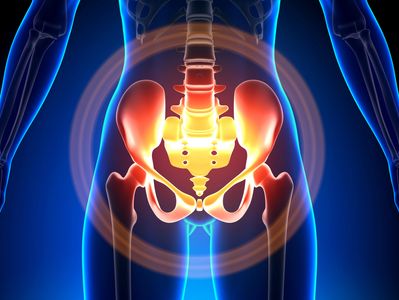PELVIC HEALTH for Men and Women
Regain your confidence!
Our pelvic health therapy is designed to help both men and women manage a variety of conditions such as pelvic pain, urinary and bowel incontinence, postpartum recovery, sacroiliac dysfunction and post-surgical rehabilitation. We focus on restoring pelvic strength, improving core stability and enhancing overall function through personalized, evidenced-based treatment plans. We work closely with you to address your unique needs, reduce discomfort, and improve quality of life - empowering you to regain confidence and live fully.
Contact us for a comprehensive assessment and take the first step toward restoring control and confidence.

pelvic pain or pressure
Pelvic pain or pressure can impact both men and women and may feel dull, sharp, achy, or heavy. It can stem from a variety of causes, including pelvic floor muscle dysfunction, nerve irritation, scar tissue from surgery or childbirth, posture or core weakness, and conditions like endometriosis or chronic prostatitis. This pain may occur with movement, sitting, urination, bowel movements, or intimacy—and often goes undiagnosed. You don't have to live with it untreated - help is available.
Urinary Incontinence
Urinary incontinence is a common condition that affects both men and women. It can range from occasional leaking during a cough or sneeze to a lack of control of the bladder, causing a sudden urge to urinate. Incontinence can result from routine daily habits, physical changes to our body like pregnancy and childbirth, age-related or hormonal changes, surgery, physical strain, or muscular imbalances in the pelvic floor. Regardless of the cause, no one should have to live with the discomfort of urinary incontinence.
pre-and-postpartum
Pregnancy is one of the most exciting times in a woman’s life. Amid the flurry of preparations for a new addition to the family and the profound physiological changes that accompany pregnancy, it's easy for women to overlook the importance of initiating or maintaining an exercise routine during this period.
The American College of Obstetrics and Gynecology strongly recommends that women engage in regular physical activity for at least 30 minutes every day throughout their pregnancy. Pregnancy can lead to postural adjustments, hormonal fluctuations, and muscle imbalances. The presence of good abdominal and low back stability can play a pivotal role in mitigating these changes. Pain during pregnancy can manifest in areas such as the lower back, tailbone, hips, or groin.
At THEORY Physical Therapy, we provide treatments tailored to your specific needs. For instance, one treatment option involves co-contraction exercises, which entail activating the transverse abdominis and multifidus muscles to strengthen the abdominal and pelvic floor muscles. This approach helps support women's health and comfort during the course of their pregnancy.
Sacroiliac Dysfunction
Sacroiliac Dysfunction, also known as SI dysfunction, can be a debilitating condition that affects your ability to walk, run, climb stairs, or even sit comfortably. It occurs when there's abnormal movement or instability in the sacroiliac joints - the joints that connect your lower spine (sacrum) to your pelvis.
SI dysfunction can result from trauma such as a car accident or fall, labor and delivery, arthritis, or muscle imbalances. The pain is often felt in the lower back, legs, buttock, tailbone, hips, groin or even down the legs. Because of its close relationship to the spine, it is commonly misdiagnosed as general low back pain. In some cases, it may lead to joint inflammation, known as sacroiliitis.
At THEORY Physical Therapy, we specialize in assessing pelvic alignment and movement patterns to identify how your SI joint may be contributing to your pain. With personalized treatment and targeted manual therapy, we help restore proper motion and reduce discomfort—so you can move with confidence again.
Osteoporosis
Osteoporosis is the condition in which bones weaken and are at risk for fracture. This is common as we age. Most common fractures caused by osteoporosis occur in the wrist, hip or spine. Weight-bearing exercises is one of the primary therapy treatments that can help reduce the pace of bone loss and strengthen weak bones. Strength training and aerobic exercise have shown in multiple studies to help build bone, decreasing the risk for fractures. If you have been diagnosed with osteoporosis or osteopenia (the beginning stage of weakened bones), we can work with you to help build a strengthening program for your body.

